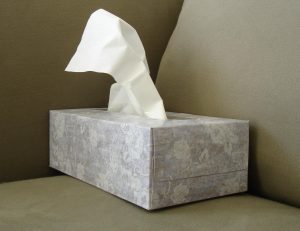15 Tips for Seasonal Allergy Relief
 Seasonal Allergy Relief
Seasonal Allergy Relief
In the spring, heavy rains can create damp indoor and outdoor conditions, leading to mold growth. The new blooms on grasses, trees, flowers, and weeds can also trigger allergies. In the summer, high temperatures and humidity, along with increased pollen counts and, in some areas, smog, can exacerbate allergies and asthma as well. Here are some tips for minimizing allergies so you can enjoy the great outdoors this season.
Spring
- Wash your bedding every week in hot water to help keep pollen under control.
- Wash your hair before going to bed, since pollen can accumulate in your hair.
- Wear an inexpensive painter’s mask and gloves when cleaning, vacuuming or painting to limit dust and chemical inhalation and skin exposure.
- Vacuum twice a week to reduce pollen, dust, and mold accumulation.
- Limit the number of throw rugs in your home, as they can trap allergens.
- Make sure the rugs you do have are washable, and machine wash them regularly (don’t hang them outdoors to dry).
- Change air conditioning and heating air filters often; at least monthly.
Summer
- Stay indoors between 5 a.m. and 10 a.m., when outdoor pollen counts tend to be highest.
- Be careful when going from extreme outdoor heat to air conditioning. The temperature change can trigger an asthma attack.
- Wear a mask when you mow the lawn or when around freshly cut grass. Afterward, take a shower, wash your hair and change clothes.
- Dry laundry inside instead of on an outside clothesline.
- Check your yard for allergens, as well as other irritants such as oak, birch, cedar and cottonwood trees; weeds such as nettle or ragweed can also trigger allergies.
- Wear shoes, long pants and long sleeves if allergic to bee stings.
- Do not wear scented deodorants, hair products or perfumes when outdoors. These can attract stinging insects.
Create Your Allergy Relief Kit
Consider it your first aid kit for allergies, and keep it in a spot that’s easily accessible to you (but not to young children). Always check expiration dates before using any medication, especially if your kit has gone unused over the winter months.
- Eye drops – for red, itchy eyes
- Nasal decongestant – for stuffiness and congestion
- Nasal spray – for dry, irritated nasal passages
- Antihistamines – for runny nose, sneezing, and itchy, watery eyes
- Injectable epinephrine (Epi-Pen) – for severe allergic reactions (prescription only)
- Hydrocortisone cream – for eczema, bug bites, and other skin irritations
- Bronchodilator (inhaler) – for asthma sufferers (prescription only)
